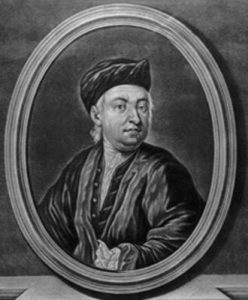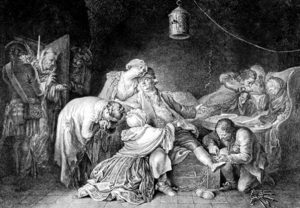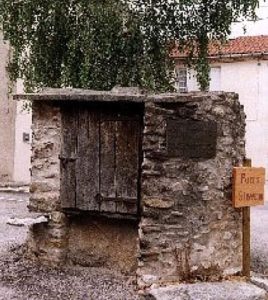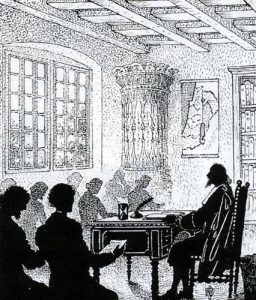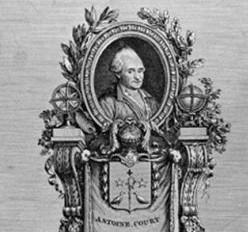Voltaire fought in defence of persecuted innocence.
As soon as he was made aware of the case in March 1762, Voltaire started inquiring. At the time, he was in Ferney, a meeting and talking place. As always, he also wrote extensively to let people know about the case.
« It seems to me that it is in everybody’s interest to look further into this affair which, however you look at it, is the height of fanaticism – “intolerance” is better. Ignoring such a thing is to abandon humanity. »
Voltaire got the trial overturned and Calas good name restored (1765)
While publishing a Treaty on tolerance (1763), Voltaire got the case brought to the King’s council, who accepted the request from Mrs Calas in favour of her husband. After numerous further steps, the Toulouse Parliament’s verdict was quashed.
In 1765, the King’s council recognized Calas as innocent. The charge was overturned and his name restored.
As the Calas family was very insecure, funds were raised to help them, and King Louis XIV himself made donations.
The Calas family house is at 50 Filatiers Street in Toulouse.

